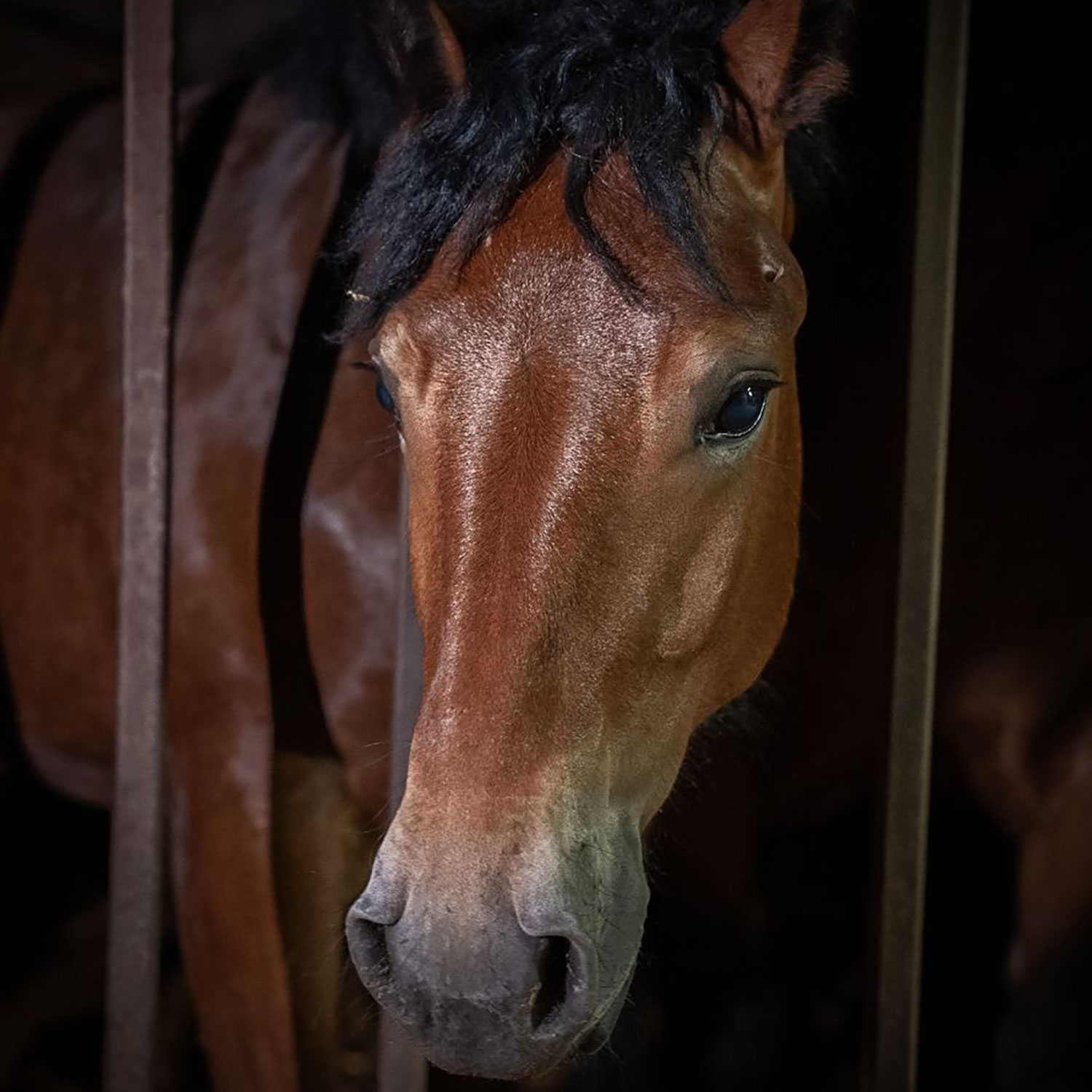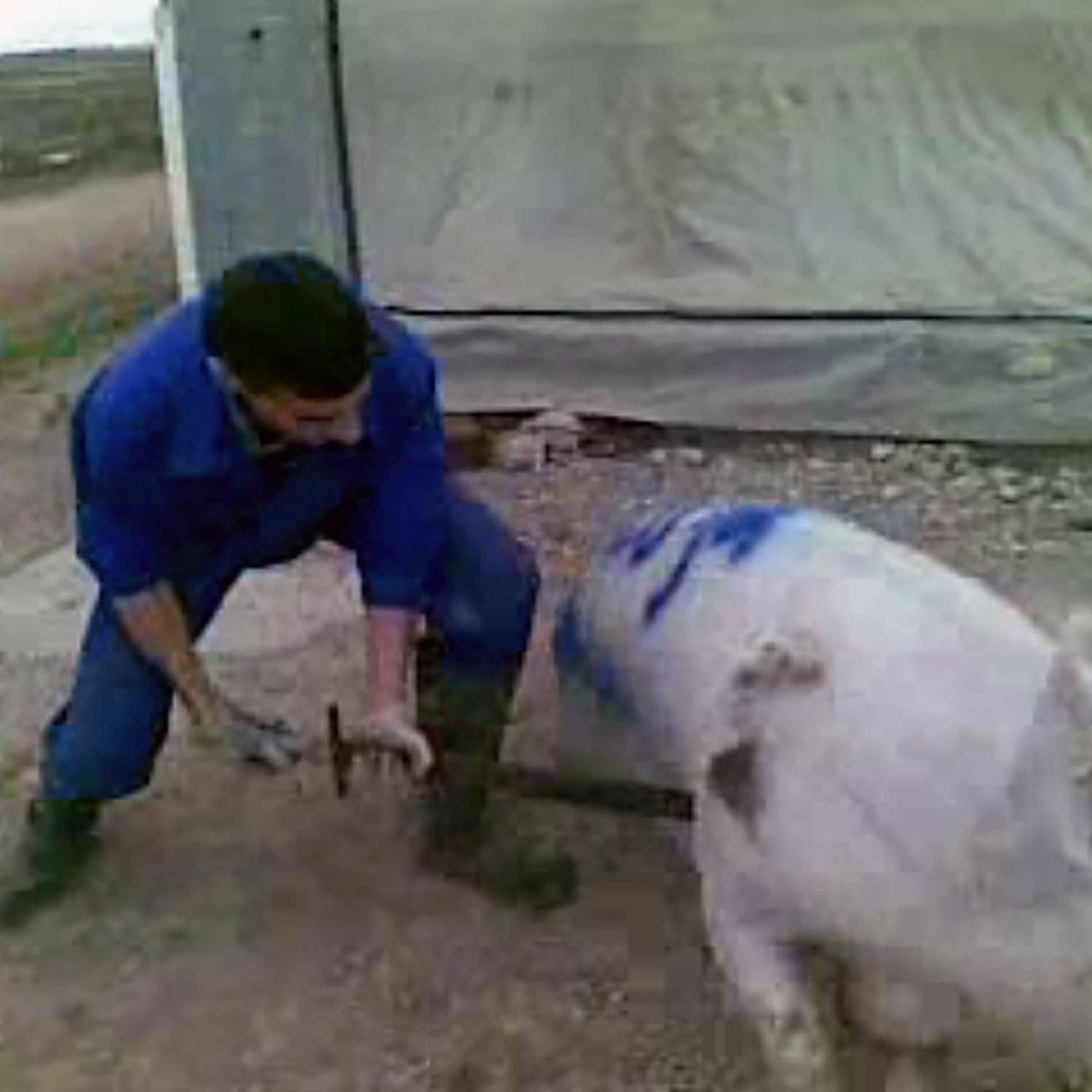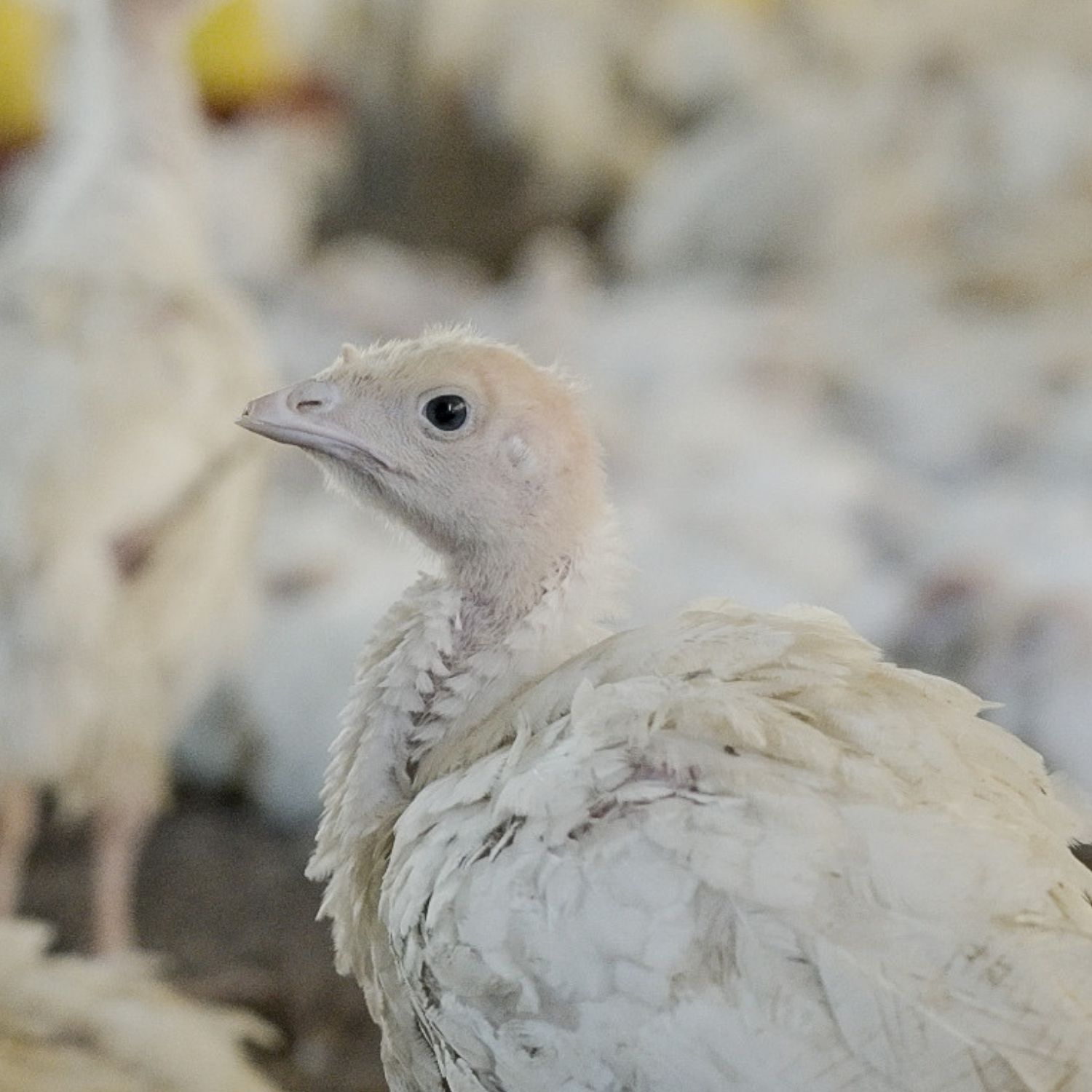USDA under fire for gutting pig slaughter oversight
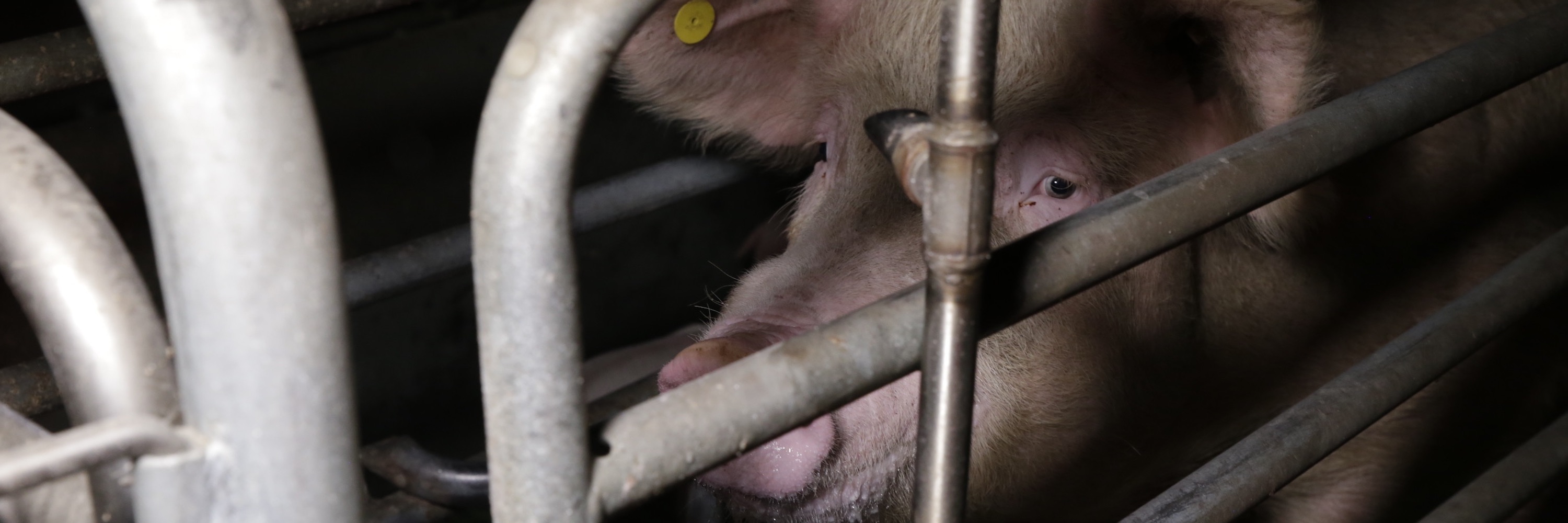
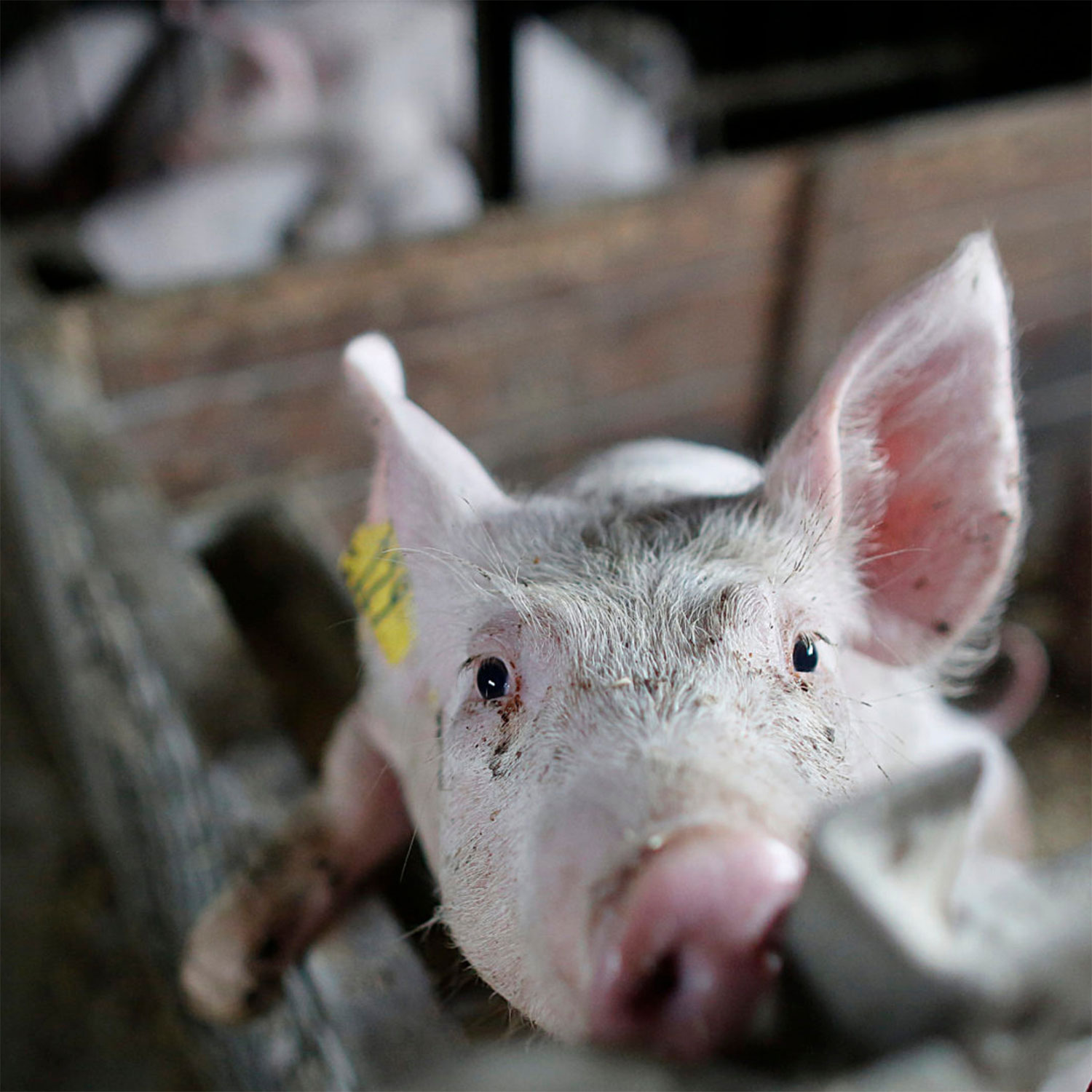
- In a move to deregulate the meat industry, the USDA approved faster line speeds at pig slaughterhouses and cut government inspections.
- These changes have sparked worries about animal protection, food safety, and conflicts of interest.
- Animal Equality and other groups have filed a lawsuit against the USDA, claiming the rule violates animal protection laws.
- The meat industry defends faster speeds as a way to improve efficiency and profits, but the rule has faced strong criticism from experts.
- Critics warn faster speeds increase the risk of pigs being improperly stunned or boiled alive during slaughter.
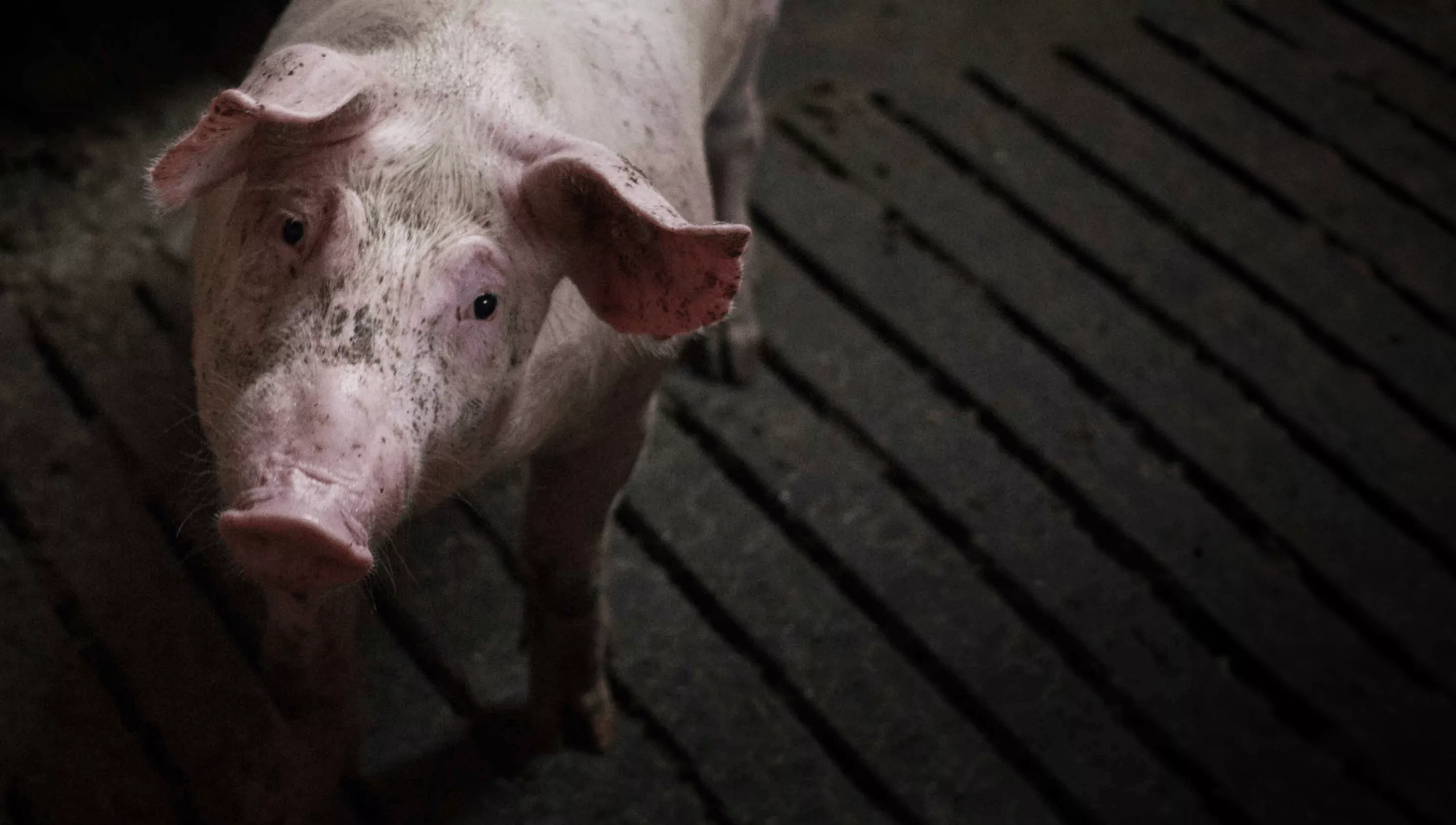
Update June 2021 – In response to the USDA’s call for input on food supply chains, Animal Equality and over 100 organizations urged an end to factory farming subsidies, slower slaughterhouse line speeds, and promotion of plant-based foods.
Update March 2021 – The Safe Line Speeds in COVID–19 Act was introduced in Congress.
Update January 2021 – The Biden administration withdrew a USDA rule to permanently increase chicken slaughter speeds and is reviewing a similar rule for pigs. Meanwhile, some chicken plants are already operating at faster speeds under USDA waivers. Advocates are urging the administration to cancel these waivers and closely monitor the issue.
Update July 2020 – Lawmakers introduced the Safe Line Speeds in COVID-19 Act–supported by Animal Equality and other groups–to temporarily limit slaughterhouse speeds. Senator Cory Booker is planning a similar bill, pointing to COVID-19 outbreaks and worsening conditions in meatpacking plants.
Since mid-March, outbreaks of Covid-19 have continued to surge in meatpacking plants across the country, infecting tens of thousands of workers and tragically killing more than 100. The majority of these workers are from immigrant communities and communities of color… The situation has only worsened since the USDA has approved nearly 20 requests from meatpacking plants to exceed regulatory limits on line speeds…” – Senator Cory Booker
Update April 2020 – USDA inspector Jill Mauer filed a sworn statement against faster line speeds, citing her experience. She warned that weaker oversight leads to rising fecal contamination, meat defects like toenails and abscesses, and diseased pigs approved for consumption. Her testimony came after the USDA moved to dismiss the lawsuit.
During the pandemic, the USDA also approved a record number of waivers for chicken slaughterhouses, allowing faster line speeds. An analysis by the National Employment Law Project found these facilities have a history of severe worker injuries and have become major COVID-19 hotspots.
Update December 2019 – Seven organizations–including Animal Equality–are suing the USDA over new rules for pig slaughterhouses. The lawsuit claims these changes–which reduce oversight and remove speed limits–violate federal laws.
These sensitive, intelligent animals are already largely overlooked by the law, and now the USDA has effectively written out the little protections Congress extended to them. – Delcianna Winders, Assistant Clinical Professor and Clinic Director of Lewis & Clark Law School’s Animal Law Litigation Clinic
Update October 2019 – A 2019 Johns Hopkins survey found strong public support for stricter oversight of factory farming, reflecting growing distrust of the industry.
The U.S. Department of Agriculture (USDA) introduced a new rule to speed up pig slaughter, sparking concerns from animal protection experts. They warn it could result in more pigs being improperly stunned or slaughtered while conscious.
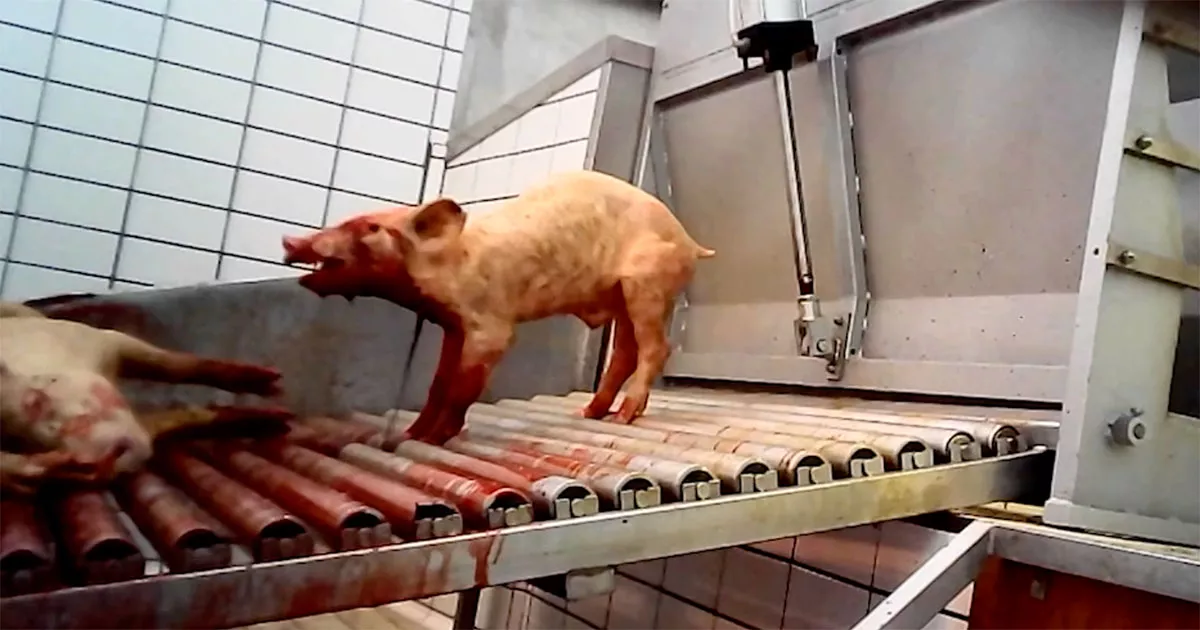
What is the USDA?
The USDA is a federal agency that oversees farming, food safety, and nutrition in the U.S. It regulates food production, inspects slaughterhouses, and promotes healthy eating–but its recent actions have raised questions about industry influence.
What happens inside slaughterhouses?
Modern slaughterhouses are massive industrial facilities designed to kill animals quickly for meat. Animals are often kept in cramped spaces and moved through a rapid assembly line. The focus on speed and high production leads to poor conditions for both animals and workers.
What is the Humane Methods of Slaughter Act (HMSA)?
The USDA’s Food Safety and Inspection Service enforces the Humane Methods of Slaughter Act, which requires animals to be stunned before slaughter. Critics say weak enforcement and faster line speeds make it difficult to ensure pigs are stunned properly.
How will the new rule impact animals?
In slaughterhouses, pigs are shackled, hung upside down, and moved along a conveyor belt to a scalding-hot water bath that removes their hair. Due to rushed and ineffective slaughter, some pigs are still alive and are boiled alive in the process. Critics warn the new USDA rule could make these incidents more common.
Why is the meat industry pushing for faster slaughter?
The meat industry has pushed the USDA for years to allow faster slaughter speeds, arguing it boosts efficiency. Slower line speeds and federal inspectors are seen as obstacles to their profits.
A new USDA rule offers pig slaughterhouses an optional inspection system, sparking backlash from animal protection, public health, and worker safety groups. Even former USDA inspectors and the agency’s own inspector general have questioned whether the rule is legal.
How did the USDA respond to criticism?
The USDA approved the rule under pressure from the meat industry, despite widespread criticism. Experts are now questioning the agency’s failure to enforce the Humane Methods of Slaughter Act.
What else is changing with this new rule?
The new rule reduces the number of federal inspectors in slaughterhouses and shifts the responsibility for documenting sick or injured animals to workers. Critics say this creates a conflict of interest, as these workers are often under pressure to prioritize profits. The rule is also expected to speed up slaughter lines by 120 animals per hour.
USDA: A history of secrecy?
In 2017, the USDA removed inspection and enforcement records from its website, making it more difficult for the public to find information about certain animal cruelty cases. Now, accessing these records requires filing a Freedom of Information Act (FOIA) request, a process that can take years to complete.
Why are animal protection groups concerned?
The USDA’s 2017 record removal focused on non-farmed animals, such as those in zoos, aquariums, research labs, and puppy mills. Now, animal protection groups worry this lack of transparency could extend to farmed animals, who traditionally have the fewest legal protections. The Humane Society of the United States has filed a lawsuit against the USDA, claiming the record removal violated a 2009 agreement to keep the public informed.
Global deregulation: a growing problem
The USDA’s decision follows a global trend of deregulating the meat industry. In Brazil, the Self-Control Law allows slaughterhouses to handle their own inspections in many cases, leading to widespread animal cruelty and safety issues. Investigations by Animal Equality have revealed cows in Brazil being tied up and skinned alive in facilities with little to no oversight.
What can I do to stop this?
The most effective way to reduce animal suffering is to stop supporting the industries that cause it. Every time you opt for plant-based foods, you shrink the demand for meat, dairy, and eggs produced in factory farms—places where animals are confined, stripped of their freedom, and subjected to cruelty.
Today, eating plant-based has never been easier. Grocery stores are full of alternatives, from hearty veggie burgers and creamy oat milk to classic staples like beans, lentils, and chickpeas. Whether you’re craving something familiar or eager to try something new, there’s a plant-based option for every palate.
Ready to make a change? Visit Love Veg to subscribe to our newsletter and download your copy of the starter cookbook. Small steps make a lasting impact—for animals and for you.
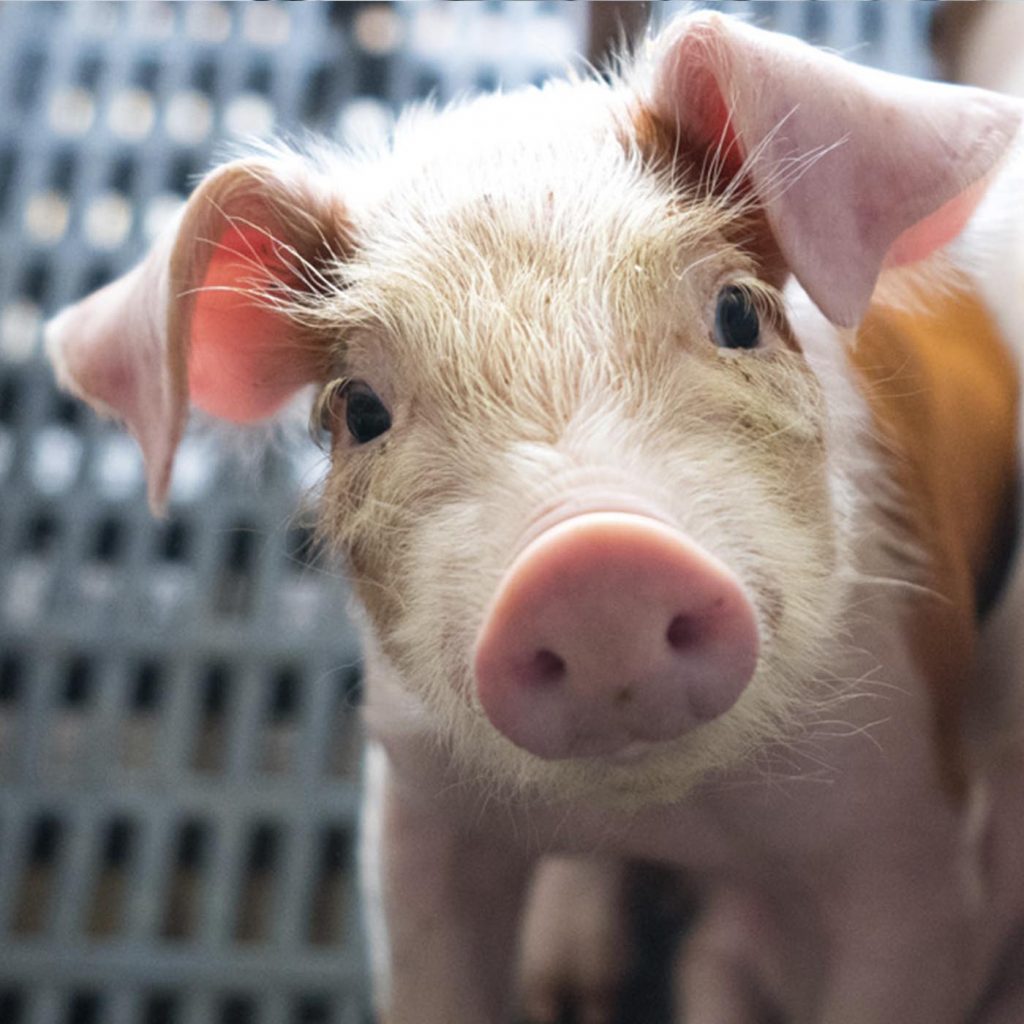
SAVE ANIMALS FROM ABUSE
Pigs, cows, and other animals feel pain and deserve to be protected from abuse.
You can protect these intelligent animals by simply choosing plant‑based alternatives.

